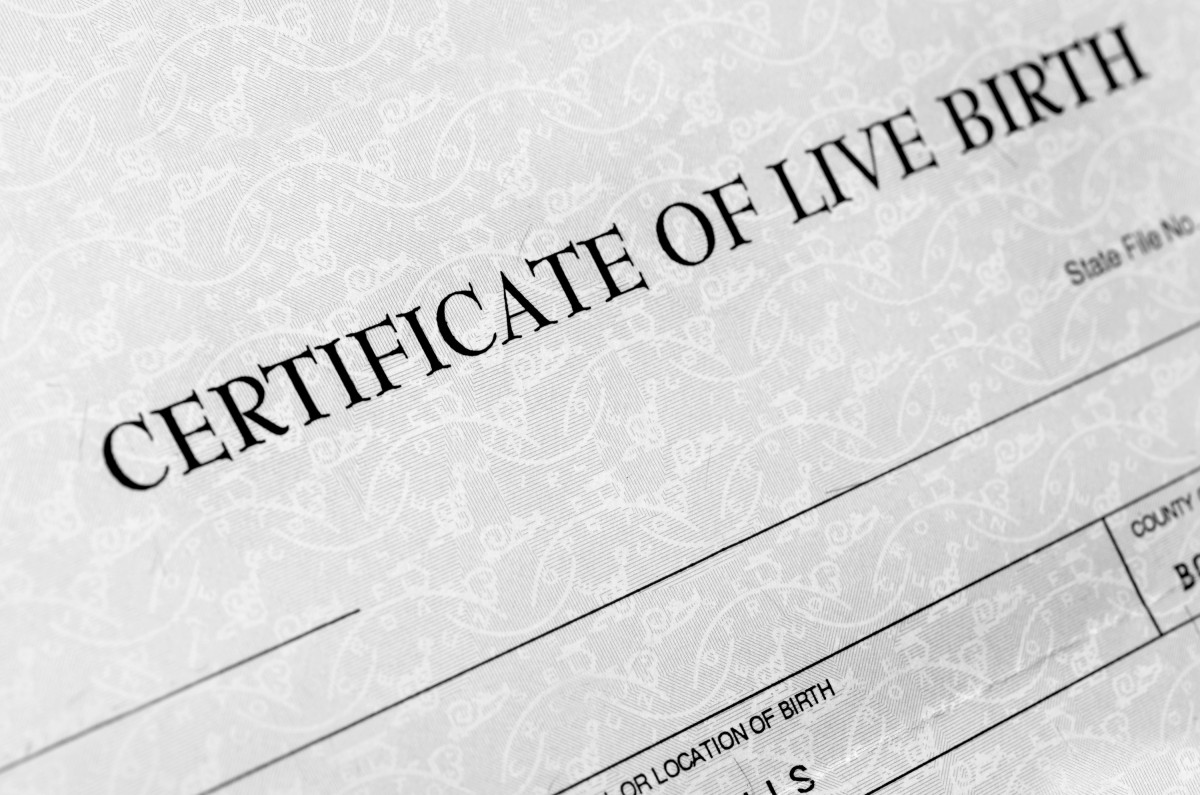27 September 2014

When citing a vital record (an official registration of birth, marriage, or death), four questions should guide our decision as to how we cite what we are using:
- Is our resource a register or a certificate?
- If we are using a certificate, is it one created at the time the event occurred (which usually exists today as a privately-held artifact) or does it represent a modern extraction of data from an earlier record, supplied us by a governmental agency?
- If we are using a certificate, does it represent a full extraction from the earlier record or is it a short-form certificate? (See EE 9.40 for differences.)
- Was this record created by a local, state/provincial, or national agency? (The data can differ from one governmental level to another.)
EE pp. 454–84 discusses many more essentials for using and understanding vital records. See also QuickTips: Citing Vital Records, 24 April 2014.
PHOTO CREDIT: "Birth Certificate Detail," CanStockPhoto (http://www.canstockphoto.com/images-photos/vital-record.html#file_view.php?id=18869906 : downloaded 15 September 2014), uploaded by eric1513; used under license.
Vital Records Data
Your helpful analytic questions are certainly most pertinent to dedicated vital-records registers and to certificates in their sundry forms and origins.
I think your first sentence ought to focus on these by some rewording, perhaps omitting the parentheses and using a word other than "official."
I have seen sole-known records of birth in Orphans Court records of Sussex County, Delaware and in records of the County Courts' minutes in northern West Virginia, where children were indentured. They may also appear in reecords of other Courts where a Guardian is appointed for a child who may or may not be of legal age to choose such a person. They can appear in miitary pension files where children were entitled to stipends as surviving children under age 16, of Union Civil War soldiers who died in service, as well as in fiduciary accounts filed concerning disposition of such stipends. These may be entered as implying dates-certain for end-point of an indenture, guardianship or stipend.
Sole-known records of death may be entered in estate records, such as petitions for Letters of Administraton, estate docket registers or records of probate of wills.
All of these are "official" records, even though not entered in documents made strictly for the purpose of recording vital dates, and even though the informants' identities may not be directly given -- as they may also not be spelled out in the dedicated registers or certificates.
I like the more general definition in EE, page 830: "vital records: records of adoption, birth, death, divorce, or marriage." This does not restrict one's thinking to a narrow range of sources for this data, just as gravestone birth-dates are not necessarily copied from a Family Bible.
Thanks for writing up these particular questions.
Jade, thanks for your
Jade, thanks for your comments. I'll also make a confession here: the length of any particular day's blog posting and how many different details it goes into often depends upon how much time I had to write it. :)
It probably could go without saying, too, but I'll say it anyway: I don't feel too guilty about the "inconsistency" in length or depth, from one posting to the next, because some fans of this blog like short stuff and some like a a lot of detail. This way, they're all getting something. Besides that, when I do shorter postings it gives readers leeway to add their own experiences, to the benefit of everybody.
Thanks for adding yours!
ESM
It is to laugh
You are a very concise writer. Perhaps terseness was on your mind, but my comment was not at all about posting length or lack of addressing the items I listed.
I meant only to suggest a topic sentence that more clearly denoted the types of records to which the questions applied. I should have restrained my impulse to edit an incredibly experienced editor's work :D
Please accept my apology in this respect.
Thanks
All suggestions are appreciated, Jade.